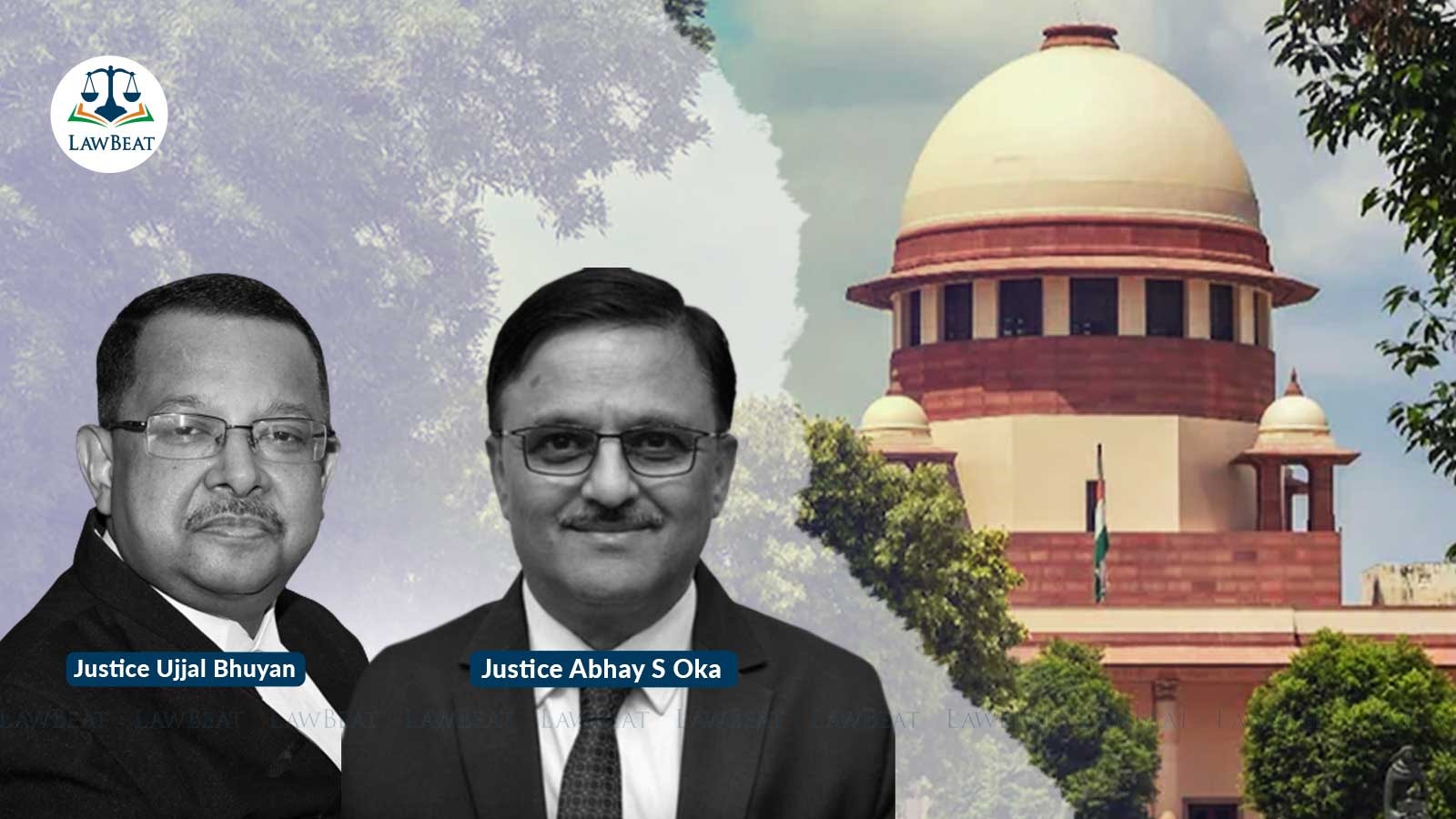No notice required to Civil Authority or Registration Officer in foreigner's bail plea: SC

Court ruled that authorities can't oppose a foreigner's bail, except under Section 14 of the Foreigner Act, and involving the Civil Authority or Registration Officer in all such cases could cause delays
The Supreme Court on January 6, 2025, said that it is not mandatory to issue notice to the Civil Authority or the Registration Officer in bail applications filed by foreigners. A bench comprising Justices Abhay S Oka and Ujjal Bhuyan clarified that neither authority needs to be made a party to such bail proceedings.
The court however emphasized that foreigners must seek permission from the civil authority to leave India, especially when required to answer criminal charges. It also noted that under Section 3(2)(b) of the Foreigners Act, the central government holds the power to issue an order generally or with respect to any particular foreigner or class of foreigners that they shall not depart from India or shall depart subject to observance of such conditions on departure as may be prescribed.
"The Rules do not impose any such restriction on departure from India. However, according to clause 5(1)(b) of the Order, no foreigner shall leave India without the leave of the Civil Authority having jurisdiction. When a foreigner’s presence is required in India to answer a criminal charge, permission to leave India must be refused," the court said.
Under the Order, the court said, the Civil Authority can impose restrictions on the movements of a foreigner.
"Therefore, once a foreigner is released on bail, he cannot leave India without the permission of the Civil Authority, as provided in clause 5 of the Order. Under clause 11 and other clauses of the Order, various restrictions can be imposed on a foreigner while he is in India. The said power is wholly independent of the power to grant bail," the bench said.
Considering a plea to issue notice to the civil authority in a case of hearing of bail to a foreigner, accused of serious offence, the bench said, the power to arrest or detain a foreigner under the Act is independent of the power of the criminal court to grant bail.
"Notwithstanding the bail granted by a criminal court, the power to arrest and detain a foreigner can be exercised, provided the Central Government makes an order in terms of clause (g) of Section 3(2) of the Act," the bench said.
Thus, The court saw no propriety in issuing a direction that either the Civil Authority or the Registration Officer should be made a party to a bail application filed by a foreigner or a notice of the bail application be issued to the said authorities.
"The reason is that the authorities under the Act and the Order have no locus to oppose bail application filed by a foreigner unless bail is sought where the allegation is of the offence punishable under Section 14 of the Act. The impleadment of the Civil Authority or Registration Officer in all bail applications filed by foreigners may result in unnecessary delay in deciding the bail applications," the bench said.
The court, however, said all that can be done is that while releasing a foreigner on bail, the court should direct the investigating agency or the State, as the case may be, to immediately inform the concerned Registration Officer appointed under Rule 3 of the Rules about the grant of bail so that the Registration Officer can bring the fact of the grant of bail to the notice of concerned Civil Authority.
The court thus directed, "While granting bail to a foreigner within the meaning of the Act, the concerned court shall issue direction to the State or prosecuting agency, as the case may be, to immediately communicate the order granting bail to the concerned Registration Officer appointed under Rule 3 of the Rules who, in turn, shall communicate the order to all concerned authorities including the Civil Authorities. If such information is furnished, it will enable the authorities under the Act, the Rules and the Order to take appropriate steps in accordance with the law."
The court also directed a copy of the order to be forwarded to Registrar Generals of all the High Courts, who will forward the copies of the order to all the criminal courts in the respective States.
By its present order, the court answered whether it is necessary to implead a Foreign Registration Officer appointed under Rule 3 of the Registration of Foreigners Rules, 1992 in the bail application filed by a foreigner.
By its judgment of July 8, 2024, the bench had said the courts should not order the accused to share a Google PIN as a condition for bail.
The court had held that imposing any bail condition that enabled the police or investigation agency to track every movement of the accused by using any technology or otherwise would undoubtedly violate the right to privacy guaranteed under Article 21 of the Constitution.
Observing that the investigating agency cannot be permitted to continuously peep into the private life of the accused, the bench had said the courts must show restraint while imposing bail conditions as the freedom of the accused can be curtailed only to the extent required for imposing the bail conditions warranted by law.
Case Title: Frank Vitus Vs Narcotics Control Bureau & Ors
